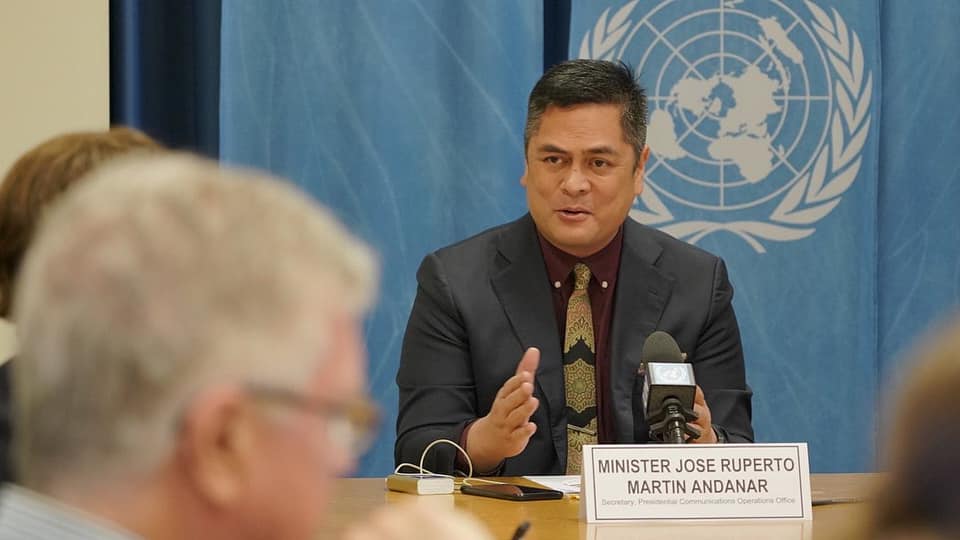News
PCOO rejects EU Parliament call to drop charges vs. Ressa

He said Ressa’s claim that the criminal charges against her were being utilized to silence the press, would be a “total disregard to the rule of law and due process as prescribed by the Constitution.” (File photo: Martin Andanar/Facebook)
MANILA – A Palace official on Sunday rejected the call of European lawmakers for Philippine government to drop all charges against Rappler chief executive Maria Ressa, standing by the legitimacy of the criminal charges against her.
“We remain firm in our position on Ms. Maria Ressa and her unfounded allegations against President Rodrigo Roa Duterte and his administration,” Presidential Communications Operations Office (PCOO) Secretary Martin Andanar said in a statement.
Andanar made this remark after the European Parliament on Thursday (Sept. 17) approved a resolution urging the Philippine government to drop “politically motivated” charges against Ressa and former researcher Reynaldo Santos Jr. expressing alarm over the “deteriorating level of press freedom” in the country.
“The legitimacy of the criminal charges against Rappler and Ms. Ressa for their violations to the anti-dummy law, securities code, income tax law, and the cyber libel, for which she was convicted, are founded on the Philippines’ jurisprudence and Constitution,” Andanar said.
He said Ressa’s claim that the criminal charges against her were being utilized to silence the press, would be a “total disregard to the rule of law and due process as prescribed by the Constitution.”
According to Andanar, Ressa has been accusing the administration of manipulation through the government’s propaganda machines when she simply refused to recognize the administration’s initiatives and high approval rating.
“Her continued allegations against the administration are being done deliberately to escape from her legal obligations,” Andanar said.
Despite Ressa’s claims that there are attempts to silence critics, Andanar said Ressa continues to enjoy her inherent right to express her beliefs and thoughts, whether they be verified or not.
“The Philippines continues to enjoy a plurality of voices, expression, opinions, and beliefs; hence, the continued operations of Rappler and Ms. Ressa’s pursuit for self-justification in response to their legal obligations,” he said.
Since the start of the President Rodrigo Duterte’s term in 2016, he said the government has worked hard to change the global stigma placed on the Philippines as one of the deadliest and worst places for journalists and media workers in the world as reported by the Committee to Protect Journalists and Reporters without Borders.
“The administration has undertaken initiatives and endeavors that promote media protection and rights, such as the creation of the Presidential Task Force on Media Security (PTFoMS) and the Republic Act 114581 or the Expanded Sotto Law. Such attainment for a better status year by year on the list has been recognized by diplomatic delegations, including the European Union,” he said.
Citing the Social Weather Stations’ survey last 2019, he said the government’s commitment to promote media protection and rights is also reflected in the poll which showed that three out of five Filipinos believe that they can speak “openly and without fear” on different issues.
Andanar said the Philippines has maintained a satisfactory position in the Economist Intelligence Unit’s (EIU) Democracy Index at 54th rank in 2019.
He reiterated that administration will continue to promote rights, freedom, and security of media workers and in observance of the rule of law and due process in spite of certain individuals and groups’ efforts to undermine their progress.
“The freedom of expression and press freedom have never been and will never be curtailed by the Duterte administration,” he said.
In June, Ressa and Santos were convicted of cyber libel over the complaint filed in 2017 by Filipino-Chinese businessman Wilfredo Keng.





















